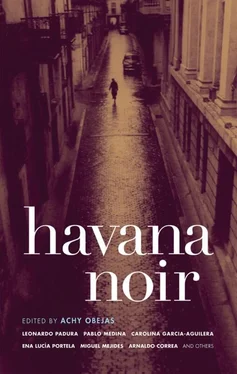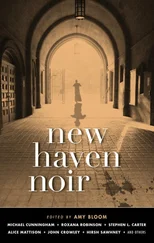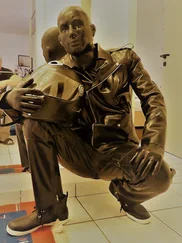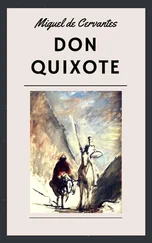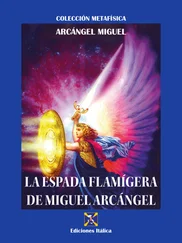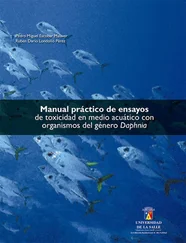Miguel Mejides - Havana Noir
Здесь есть возможность читать онлайн «Miguel Mejides - Havana Noir» весь текст электронной книги совершенно бесплатно (целиком полную версию без сокращений). В некоторых случаях можно слушать аудио, скачать через торрент в формате fb2 и присутствует краткое содержание. Город: New York, Год выпуска: 2007, ISBN: 2007, Издательство: Akashic Books, Жанр: Детектив, на английском языке. Описание произведения, (предисловие) а так же отзывы посетителей доступны на портале библиотеки ЛибКат.
- Название:Havana Noir
- Автор:
- Издательство:Akashic Books
- Жанр:
- Год:2007
- Город:New York
- ISBN:978-1-933354-38-5
- Рейтинг книги:4 / 5. Голосов: 1
-
Избранное:Добавить в избранное
- Отзывы:
-
Ваша оценка:
- 80
- 1
- 2
- 3
- 4
- 5
Havana Noir: краткое содержание, описание и аннотация
Предлагаем к чтению аннотацию, описание, краткое содержание или предисловие (зависит от того, что написал сам автор книги «Havana Noir»). Если вы не нашли необходимую информацию о книге — напишите в комментариях, мы постараемся отыскать её.
, authors uncover crimes of violence and loveless sex, of mental cruelty and greed, of self-preservation and collective hysteria, in a city characterized by ironic and wrenching contradictions.
Havana Noir — читать онлайн бесплатно полную книгу (весь текст) целиком
Ниже представлен текст книги, разбитый по страницам. Система сохранения места последней прочитанной страницы, позволяет с удобством читать онлайн бесплатно книгу «Havana Noir», без необходимости каждый раз заново искать на чём Вы остановились. Поставьте закладку, и сможете в любой момент перейти на страницу, на которой закончили чтение.
Интервал:
Закладка:
Ever since 1959, when Fidel Castro’s revolutionary army swept into Havana, life in Cuba had been difficult for both of them. For the past three years, since the collapse of the Soviet Union, life had become almost unbearable. The Soviet government had kept Cuba afloat with fuel, food, and supplies for decades; its demise left the people of the island to cope as best they could. Power shortages and blackouts occurred daily, worsening the situation. The Cuban government was no longer able to feed its citizens — the most basic needs were unmet — and as a result, Cubans had to fend for themselves and scrounge for food.
Castro tried to rally his compatriots by proclaiming, “Socialism or death!” but both were a hard sell. Rather than choose Socialism, a number of Cubans had hurled themselves onto rafts and taken their chances on the high seas, risking drowning or sharks, rather than continuing to struggle at near-starvation.
But Luis and Eladio had managed to escape some of the ravages of time and privation, though: The eyes of both men still sparkled with intelligence.
On this exceptionally hot July afternoon in 1992, Luis had spent most of the afternoon outside, sitting in his favorite wicker rocking chair on the terrace of his family’s house, fanning himself, trying to escape the oppressive heat. For the past three hours he had been awaiting Eladio’s arrival, wanting to hear his report. He knew what the other man was going to tell him, but the truth was he had nothing else to do.
The Rodríguez-López house, which was located in the Flores section of the city, had once been beautiful and majestic. Unfortunately, it had fallen into such disrepair that it was difficult to imagine what it had once been. To those few individuals who still visited, the sad state of the house and its grounds brought to mind an aging but still beautiful woman: She had good bones and erect carriage, and one wanted desperately to do something, anything, to help her regain at least part of her once famous beauty. Whatever paint was still on the walls was so faded that it was impossible to tell what its original color had been. The deadly combination of neglect, mold, and mildew had caused chunks of plaster to fall from the walls and ceilings with terrible consequences. The few treasures — items of only personal value, mainly Luis’s photo album — were kept wrapped in layers of old newspaper. Even in such dismal circumstances, there was the hope that the house wasn’t too far gone to be restored to her former life.
Although Eladio dusted and swept several times daily, his efforts made no noticeable difference, as there was always a white layer of fine dust everywhere. He kept on, with as much fresh energy and vigor as his seventy-year-old body would allow.
With the passing years, the physical deterioration of the house was such that gaping holes would appear all over, creating bizarre, puzzling patterns in the walls and the floors, as if whoever had built it had run out of materials to finish the job. There was nothing Eladio could do about that either, except to watch it happen.
And it wasn’t just internal damage that had caused so much destruction. In earlier times, only hard, sustained rains could cause the ceiling to leak; but because the structure had been so weakened, lately even the lightest rain would cause damage, adding to the slow wrecking of the structure.
The large garden surrounding the house was now a clutter of broken fountains, toppled stone statues, overgrown bushes, and fallen trees sunk in the tangle of weeds. Throughout the years, so much debris had dropped into the swimming pool, filling it to the rim, that sometimes the residents of the home forgot it had ever existed. For them, the state of the house and garden was heartbreaking, and it was difficult to believe that the property had been featured in magazines as being one of the most beautiful of pre-revolutionary Havana.
Although the house was very large, only three individuals — Luis Rodríguez-López, his wife María Eugenia, and Eladio Martínez, their servant — had lived there for more than forty years. It hadn’t always been that way, however. All three could still clearly recall the days prior to the Revolution, when the house had been filled with noises from the kitchen, with the clacking of ladies’ shoe heels against the marble floors — the times when it had not been unusual to have thirty or forty family members come over for Sunday lunch, after the noon mass at Santa Rita. The house, built in the Napoleonic style, had been in the Rodríguez-López family for more than one hundred years, and if the current owner had his way, would continue to be so for the next hundred.
The fact that Luis believed so strongly that the house should remain in his family was the primary reason he had refused to go into exile with his family when they had all left Cuba in the early ’60s. For him, the house was much more than just a structure; it represented a way of life that he refused to let go of — for Luis, to leave the home would mean forfeiting his family’s history.
As the Castro government would immediately confiscate — without any form of compensation, of course — the homes of any Cubans who fled the country, Luis knew the only way to keep the house in Rodríguez-López hands was to stay and protect it. Even so, remaining in the home was no surefire guarantee that the three of them wouldn’t be evicted, or be forced to open the house for others to move in with them. He’d heard stories of that happening to other families, and each case had made him more determined than ever to avoid those scenarios.
Staying was better, Luis believed, than just walking out. As if losing their properties were not enough, those owners who left Cuba were forced by law to hand over the keys to the government upon their departure. Fearing that one day he would need the knowledge, Luis had become increasingly obsessed with the laws that governed all aspects of Cuban property rights under the Castro regime. Since he, María Eugenia, and even Eladio lived in the house for more than three years, supposedly they could not be evicted. Eladio, by virtue of having lived there so long, had the same rights (in other countries, those were referred to as squatters’ rights) as the actual owners of the property. In truth, as long as the three continued living there, they could feel reasonably secure — or as secure as anyone could be under the present regime — that they wouldn’t find themselves out on the street, homeless, especially since they were all over sixty-five years old, the cutoff age for eviction. Yet knowing how mercurial and arbitrary the Cuban government could be, Luis worried nonetheless.
He knew he could make some extra money by renting out some of the bedrooms — an illegal but commonly practiced activity of the cash-strapped residents of Havana, especially those who lived in or near tourist areas. Luis feared, however, that this might jeopardize his ownership of the home. Suppose whoever he rented to would not move out after three years and became another owner? Also, the idea of strangers living in a house that had been the home of eight generations of the Rodríguez-López family was truly distasteful to him. Special Period or not, he knew his ancestors would turn in their graves if he were to do that.
María Eugenia hadn’t originally been as attached to the house as her husband. It hadn’t been her family’s home, and she had only lived there, in the old times, for a few months as a bride. Still, she had married Luis for life, and if “life” meant staying in Communist Cuba with him and saying goodbye to her family and friends, then that’s what she would do. She knew that nowadays her husband mostly lived in the past — even while looking forward to the future, for the day when the nightmare that was Castro’s Cuba and this wretched Special Period would end and a more civilized, refined life would return.
Читать дальшеИнтервал:
Закладка:
Похожие книги на «Havana Noir»
Представляем Вашему вниманию похожие книги на «Havana Noir» списком для выбора. Мы отобрали схожую по названию и смыслу литературу в надежде предоставить читателям больше вариантов отыскать новые, интересные, ещё непрочитанные произведения.
Обсуждение, отзывы о книге «Havana Noir» и просто собственные мнения читателей. Оставьте ваши комментарии, напишите, что Вы думаете о произведении, его смысле или главных героях. Укажите что конкретно понравилось, а что нет, и почему Вы так считаете.
